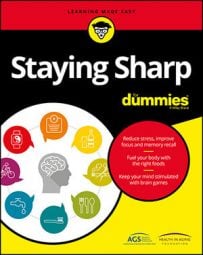Working memory — the ability to keep information in mind and manipulate it — is a crucial component of musical skills as well. For example, pianists use working memory when they read music. While they're fingering the piano keys, they're also looking ahead to read the notes that are coming next. Expert musicians need to have good working memory to make the correct sounds while simultaneously anticipating and preparing for the next action.
In addition to working memory, the brain also processes musical information with both the left and right hemispheres of the brain. This mental cooperation during musical instruction can also impact how children learn.
Which part of the brain is involved in processing music? The right hemisphere is more involved in processing pitch, melody, and harmony as well as structure and meaning in musical sequences. Studies using brain imaging to measure brain activity of newborns (just a few days old) found that the infant brain already comes equipped with specific and specialized functions for understanding music. The right hemisphere processes music that's tonal (with pitches arranged in a regular hierarchy). But the left hemisphere (the left inferior frontal cortex) processes music that's dissonant (or not harmonious or melodic).
If you're too embarrassed to sing karaoke with friends, you can use music in other ways to boost your brain. Here are some things you can try:
- Clap your hands. It sounds surprising, but children who sing songs that involve hand clapping have neater handwriting and fewer spelling mistakes. It may be that the motor skill component of hand clapping helps in the classroom. But clapping isn't just for kids' songs. Make an effort to clap along when you hear a song. Focus on the beat of the song and clap in tempo. Doing so trains your brain to follow the tempo.
- Get a drum. Rhythm links to working memory skills. For example, something as simple as being able to remember the sequence of taps relates to how well you can remember what someone's just told you. Most information involves a sequence. For example, you have to remember how to do things in the order that you were told. This progression of doing one thing first, followed by another and finally the last is very similar to how people remember a sequence of sounds. So the next time you listen to a song, pay attention to the beat to boost your memory for a sequence of tasks.
- Write a song. You don't have to be Beethoven or Beyoncé to come up with a song. Remember when you were a kid and loved to make up silly songs?
As an adult, you can keep your love of singing and making music alive. The easiest place to start is with a sentence that expresses your emotions. Write a few lines and then put a little tune to the lines. If you can't come up with a tune on your own, use one from a song you like. The goal of this activity is to integrate different parts of the brain during song writing — from writing words to thinking of the tempo to putting it all to music. Who knows; you may even get your family to start singing your songs.
If you're one of those people who think that their singing should never leave the shower because you can't carry a tune, you're not alone. Around 10 percent of the population is tone deaf, which means that they can't sing in tune. Tone-deaf people also can't consciously tell that their singing is off-key. New scientific research has identified a specific brain circuit that links sound perception with producing language that's missing in people who are tone deaf.
Listening to music has many benefits, from improving language skills to recovering more quickly from a stroke. However, if you're trying to concentrate, listening to music (and singing along!) can distract you. Studies have found that when people do two things at the same time, they become less efficient and make more mistakes. And it doesn't make any difference whether you enjoy the music you're listening to — having music on can still cause you to make more mistakes.
In one study, researchers asked people to remember a list of words and do some mental math tasks while listening to music they liked, listening to music they didn't like, or in a quiet environment. People did the best on the tasks when they did them in a quiet environment. So although music is great for your brain, it's not so good if you're listening to it while doing something that demands your attention. If you're a music lover, consider enjoying your music beforehand rather than playing tunes in the background.
